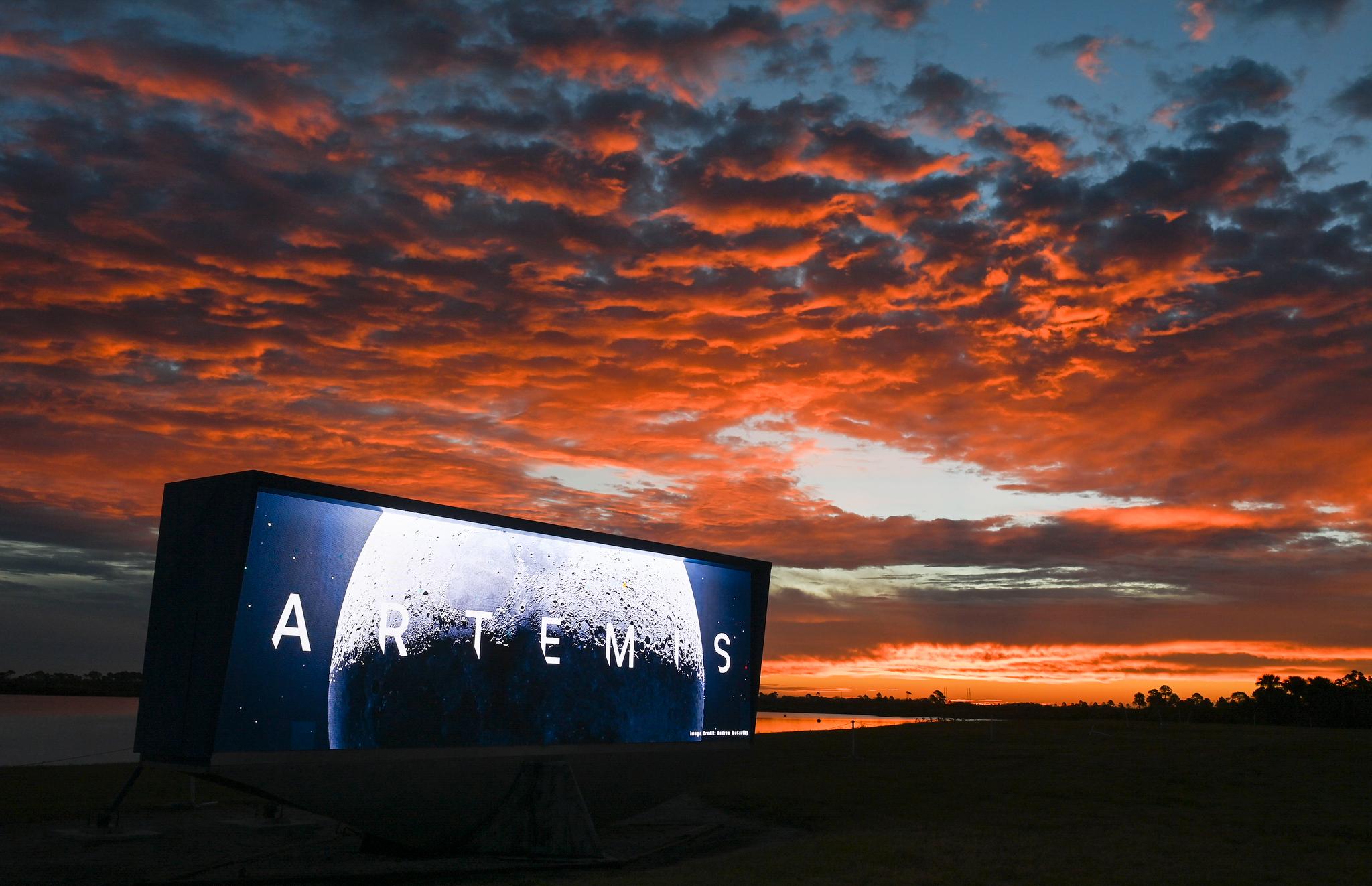(The Washington Post): Nasa is working hard again to send people to the moon. People in the US don’t quite see the point.
The clock showing the countdown at the Kennedy Space Center last November as NASA prepared to launch the Orion spacecraft on a test trip near the moon. Photo: Jonathan Newton, The Washington Post
sea view
NASA’s primary goal with the Artemis program is to send astronauts back to the moon. Most Americans, on the other hand, believe that two other tasks in particular should have been prioritized.
This is shown by a new survey from the independent research group Pew Research Center in Washington:
The space agency should rather use resources to keep an eye on asteroids that could hit Earth. The second priority for NASA should be to monitor climate change, the respondents believed.
March? No thanks.
Participants were asked to rate the importance of nine separate space projects. Only 12 percent of American adults believed that NASA’s top priority should be sending astronauts to the moon again.
Even less popular: The idea of sending humans to Mars. Only 11 percent believed that Nasa should prioritize this.
In contrast, 60 percent answered that the organisation’s most important task should be to observe asteroids. 50 percent believed that NASA should use resources to monitor climate change.
Traveling there again? Most Americans don’t think it’s that important. The picture shows the moon as seen from Oslo on 29 January 2021. Photo: Stein Bjørge
sea view
Around the moon in ´24
The research comes as Nasa is working on plans to send four astronauts into orbit around the moon for the first time since the 1970s.
The Artemis 2 mission is scheduled for late 2024. It follows last year’s Artemis 1, which sent the Orion spacecraft into lunar orbit without any astronauts on board.
NASA must endure cuts in next year’s budget. But the sum earmarked for space exploration has remained largely intact, at nearly $8 billion.
The Appropriations Committee in the Senate believes this is sufficient money to continue the development of the Artemis project.
Race with China
The space agency is requesting appropriations from Congress to put astronauts on the moon’s surface by 2025. It’s a goal that even Nasa’s own people find optimistic.
But Nasa chief Bill Nelson has said the US is in a space race with China, which plans to send astronauts to the moon by 2030.
Both countries have cast their eyes on the moon’s south pole. There is water in the form of ice. In recent years, China has also placed a space station in low-altitude orbit around the Earth, landed a rover on Mars and a robotic vehicle on the far side of the moon.
Popular agency
In addition to the view of Nasa’s priorities, the survey from Pew found that Nasa is and will be a popular organisation.
65 percent of those questioned say it is important that Nasa continues to be involved in the exploration of space. A smaller proportion, 32 percent, did not agree.
They replied that a growing commercial sector in space travel would be able to ensure that enough progress is made in space research, even without Nasa being involved.
Tracks 40 percent
In 2016, NASA created the agency for space defense, the Planetary Defense Coordination Office. It will monitor asteroids that may pass uncomfortably close to Earth.
There are no known large asteroids expected to hit Earth in the next 100 years. But Nasa estimates that they track only about 40 percent of the asteroids that are large enough to cause chaos and disaster if they were to hit Earth.
Successful test
Last year Nasa carried out its first successful “planetary defense mission”. They hit an asteroid with a spacecraft and changed its orbit.
This was just a test. The asteroid posed no threat to Earth. But it showed that Nasa is able to change the course of an asteroid that could actually pose a threat to our planet.
The survey also showed that almost half of Americans, 44 percent, believe that the United States “certainly or probably” will fight a war against other countries in space within the next 50 years.
Exclusive Norwegian right: Aftenposten
2023-07-29 21:33:23
#Americans #return #moon


